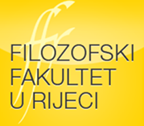DOCTORAL STUDY PROGRAMME IN PSYCHOLOGY
About the Programme
The fundamental mission of this doctoral study programme in psychology is to contribute to the intellectual, social, cultural and economic development of the community. This, in turn, will enhance the level of education for psychologists and similar experts, it will enable the carrying out of important scientific, developmental, and applied research.
The central aim of this postgraduate doctoral study programme is to advance knowledge through the creation and implementation of original research. Candidates will develop key research skills, such as problem solving, innovativeness, creative and critical thought, the ability to analyse and synthesise data and further development strategies. They will also develop generic skills such as communication skills, presentation skills, team work skills and a broad spectrum of social skills.
The principle motivation behind launching this doctoral study programme with its research activities is to primarily contribute to the development of the region, and the development of the Republic of Croatia as a whole.
The uniqueness and recognisability will be supported through the application of the following principles:
- Choice and a total orientation towards research,
- Mobility of students and staff,
- Interdisciplinarity,
- Collaboration,
- Partnership with the local community.
Structure of the Study Programme
According to the Ordinance about Doctoral Studies at the University of Rijeka, the study programme is performed full-time and lasts three (3) years.
Note: Students are obliged to complete the studies no later than twice as long as the duration of the studies.
Upon completion the Postgraduate Doctoral Programme, the graduates obtain 180 ECTS credit points.
The study programme is totally oriented towards research.
The first year of the study programme consists of direct courses and offers an organised form of study (involving consultative teaching, teaching through the e-learning system, scientific seminars and discussion groups).
The second and third years of the doctoral study programme are based on flexible organisation, which is independently structured by the candidate in collaboration with a three member committee that follows the work of the doctorand (which is made up of the mentor and two further lecturers in the area of the doctorands research).
For each activity there are a minimum and maximum number of ECTS credits.
The study obligations are divided up in the following way:
- teaching obligations that earn a minimum of 55 ECTS and a maximum of 60 ECTS credits,
- scientific research that earns a minimum of 100 ECTS credits and a maximum of 120 ECTS credits,
- other optional activities that earn a minimum of 15 ECTS credits and a maximum of 30 ECTS credits.
Academic/professional degree: Doctor of Science from the Area of Social Sciences, Field of Psychology
Who can Enrol
To enrol on the study programme, the expected preconditions are:
- completed graduate studies in psychology or other graduate studies in the Republic of Croatia or abroad, where the candidate has acquired 300 ECTS (including university undergraduate studies) or
- completed undergraduate studies in psychology or other undergraduate studies* in the Republic of Croatia in a study programme that started prior to the start of the Act on Scientific Activity and Higher Education (O.G., No. 123/03.).
- academic degrees "Masters of Science", "Masters Specialist" or Postgraduate Scientific / Specialization Study Programme in Psychology* or other scientific field, with passed all the prescribed subjects of the study.
- the average grade in previous studies should be at least 3,5.
* If candidates have not completed their undergraduate or graduate studies in psychology then they need to take differential exams in order to check whether they have the knowledge and skills that are required to be able to follow the study programme and write the doctoral dissertation.
Number of Students: 30
Competences
Doctorands gain the competences at the highest level (8) of the Croatian Qualification framework. This means that they create and evaluate new factors in the area of scientific research, which results in the creation of new knowledge. They also develop social skills, independence and a responsible work ethic.
The specific and generic skills that doctorands are expected to have developed by the end of their doctoral studies and after they have written their doctoral dissertation are:
- information gathering skills (literature research, critical reading and analysis of objectiveness, interview skills, construction of measuring instruments),
- planning skills and project management (creation of a scientific research outline, organisation of the carrying out of research, timely discovery of potential problems, acquisition of required funds, leading a research team),
- familiarity with statistics and developing conclusion skills (familiarity with work on the computer and applied programs, understanding statistical reasoning, statistical analytical skills, ability to draw conclusions on the basis of quantitative data), written and presentation skills (speaking and listening skills, ability to present data and findings to a non-expert audience), skills in the presentation of professional and ethical authority, readiness to take on ethical and social responsibilities required for the successful carrying out of research, for the social use of research results, as well as possible social consequences, readiness to confront new challenges in society and the economic sector.
Postgraduate Doctoral Studies in Psychology:
Defended Doctoral Dissertations:
Marić Mateja (2022): Neurodynamic Models of Top-Down Effects on Visual Perception
Article Based / Compilathion Thesis:
List of Foreign Lecturers:
Manual for Supervising Young Researchers:
Code of Ethics - Univeristy of Rijeka:












